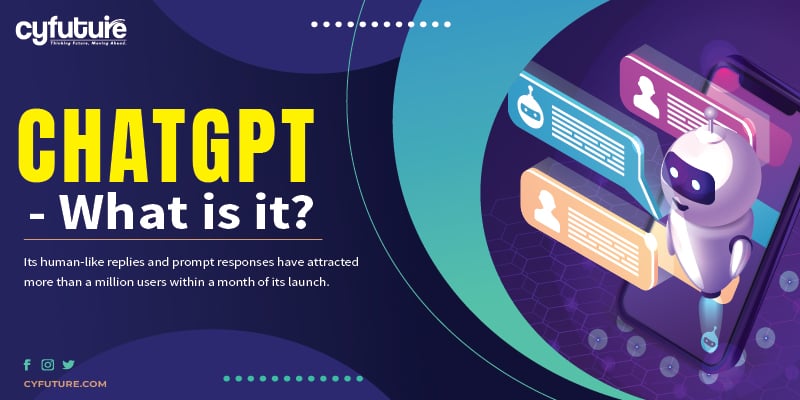-
Get Cloud GPU Server - Register Now!
Toggle navigation

On November 30th, Open AI, an independent research and deployment company founded by Elon Musk and Sam Altman, a former Y Combinator president, and entrepreneur, launched ChatGPT.
Its human-like replies and prompt responses have attracted more than a million users within a month of its launch.
For a layman, it serves the purpose of an AI friend. As the name implies, the GPT is a Generative Pre-Trained Transformer, which means it understands and responds to natural human speech, and answers questions like a human.
A deep-learning language model specializing in generating written text that looks like the human-written text is GPT. Using three or more layers of a neural network, deep learning simulates the behavior of a human brain so that it can learn like us.
In ChatGPT, two competing neural networks – a Generator and a Discriminator – work in competition to generate realistic-looking outputs.
As the Generator creates fake outputs, the Discriminator determines whether the outputs are real or fake. Through this back-and-forth process, the GAN can produce outputs that are indistinguishable from real-world data.
ChatGPT now uses this concept in text-based conversations, much like chatbot services. By using GANs, it can engage in natural-sounding, human-like conversations with input texts. When you ask ChatGPT what it would do if it could become invisible, it might reply, “I would need technologies, such as cloaking devices that use metamaterials, that can bend light around an object to make it appear invisible from certain angles.”
Humans wouldn’t be able to type in such a reply, but ChatGPT is capable of doing so within the human imagination.
OpenAI’s website offers a free trial of ChatGPT, which you can access by logging in, clicking on the Try ChatGPT button, and taking a test drive. ChatGPT was trained using the Reinforcement Learning from Human Feedback (RLFH) method from OpenAI. In this method, AI is trained by rewarding and punishing it. It is therefore divided into two categories when taking actions – desirable and punishable. Actions that are rewarded are rewarded, whereas actions that are punished are penalized. By experimenting, AI learns what works and what doesn’t.
Humans have also been used as trainers by OpenAI. These trainers both played the role of a user and an Artificial Intelligence assistant throughout these conversations. It is important to note that this training method is prone to mislead the model, as it can often lead to erroneous predictions.
Models should be able to produce an answer based on what they know rather than what the demonstrator knows. A question that is inappropriate will also be declined. Therefore, ChatGPT may decline to answer a complex question or one that doesn’t follow ChatGPT’s understanding.
I’m glad to say that shouldn’t be the case. A moderation API has been implemented by ChatGPT in order to prevent moderation issues. This AI-based moderation system helps developers determine if a message violates the company’s content policy and prevents harmful or unlawful content from being communicated. Despite this, OpenAI admits that the API isn’t perfect, and there are still issues with it.
According to Altman himself, we’ll soon be able to talk with our assistants, ask them questions, and receive real-time advice.
Sam Altman, the CEO of ChatGPT, has already indicated the platform will be monetized in the future, though it is currently free to use for research. There will have to be some way to monetize it eventually; the computation costs are astronomical.”
Read More: Will Artificial Intelligence replace Human Jobs by 2030?
By answering complex questions and providing answers to problems, ChatGPT will change the way we use search engines. When asking a question, it can also fix a bug, which is useful for developers.
Cyfuture is also gearing up for the latest AI technologies and services. Currently, Cyfuture offers Artificial Intelligence services that help them excel and achieve much more than they ever imagined. Visit our website to know more.